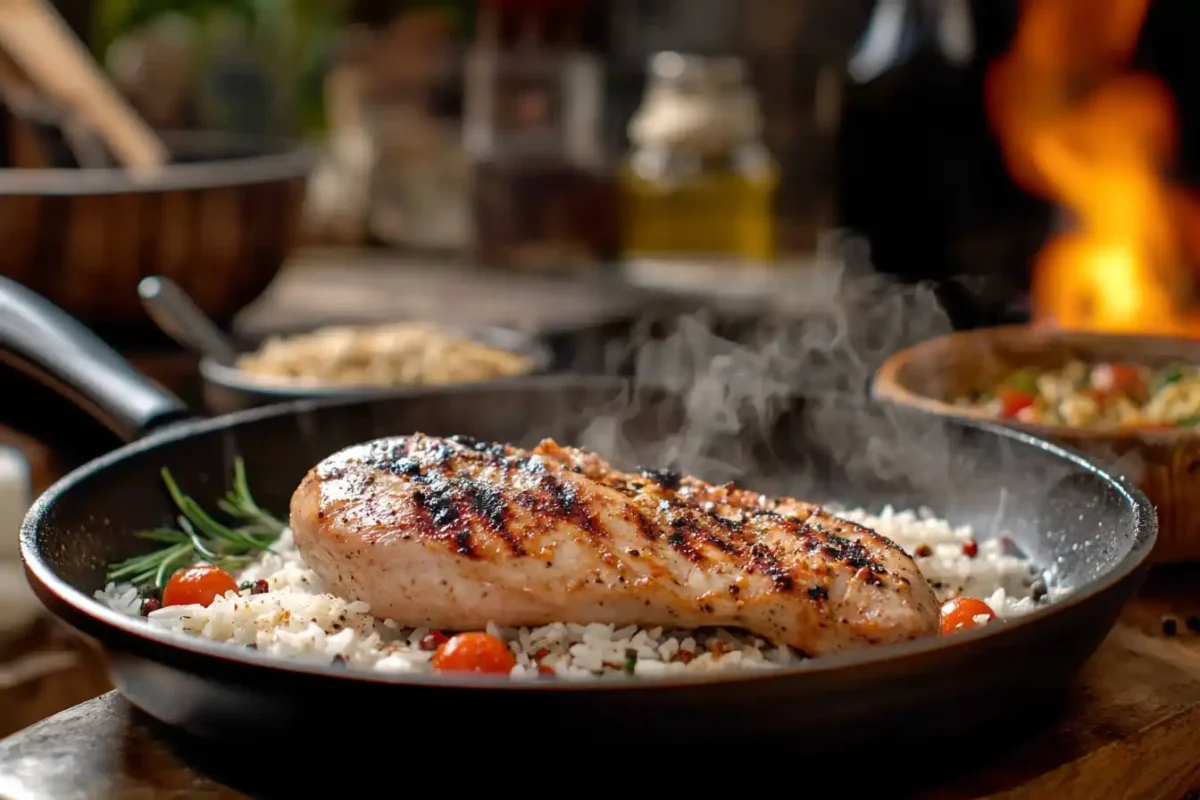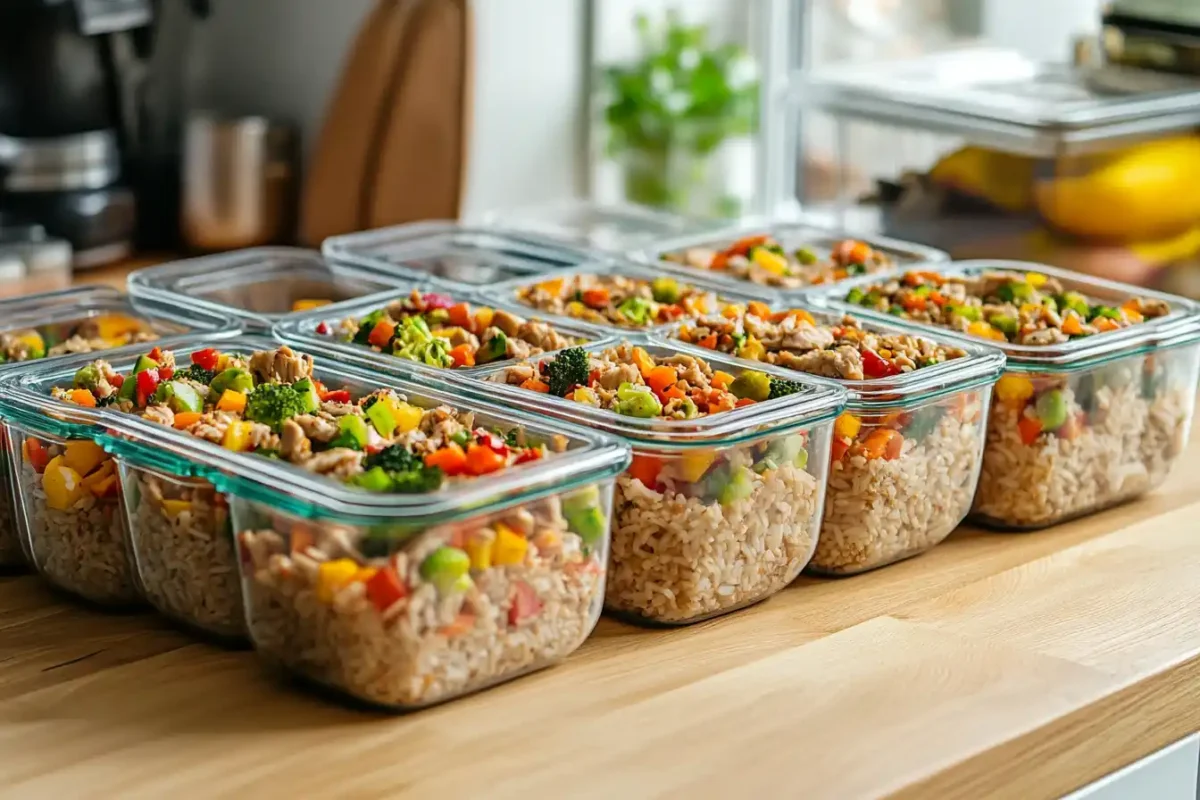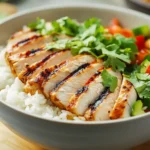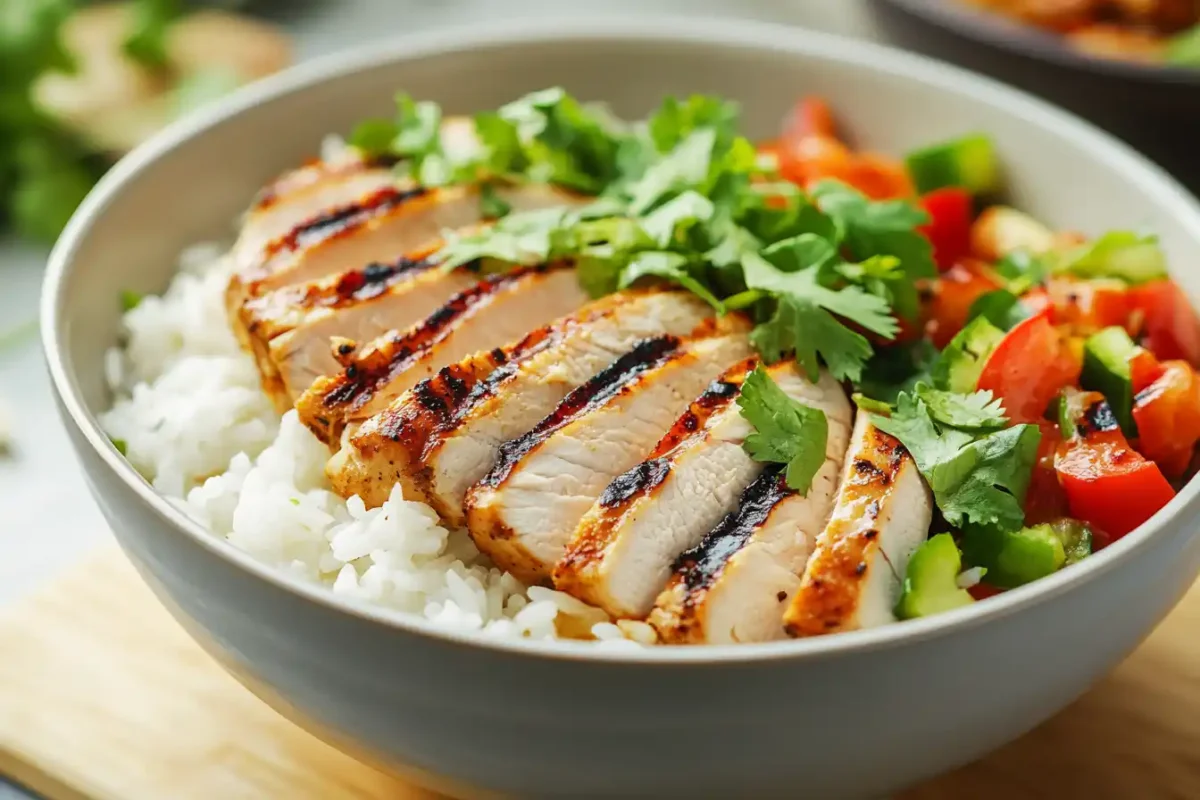Why Turkey and Rice is a Popular Meal Choice
Imagine coming home after a long day, craving something warm, delicious, and nutritious. You open your fridge, and there it is lean turkey and fluffy rice, ready to be turned into a hearty meal. But have you ever wondered if turkey and rice benefits go beyond just being a quick and tasty dinner? The answer is yes!
Turkey and rice benefits make this meal a favorite among fitness enthusiasts, families, and anyone looking for a balanced diet. It provides high-quality protein, essential vitamins, and long-lasting energy. Whether you’re trying to build muscle, lose weight, or just eat healthier, this combination has something for you.
The Nutritional Benefits of Turkey and Rice
When combined, turkey and rice create a **nutrient-dense** meal that fuels your body with essential macronutrients and micronutrients. Let’s take a closer look at their nutritional profiles.
Why People Choose Turkey and Rice for a Balanced Diet
- High in **lean protein**, which supports muscle growth and repair.
- Provides **complex carbohydrates**, offering long-lasting energy.
- Rich in **essential vitamins and minerals**, such as B vitamins, iron, and selenium.
- Easy to digest and great for meal prep.
Nutrition Facts: Turkey and Rice
Here’s a breakdown of the nutrients found in a **standard serving of turkey and rice (4 oz turkey + 1 cup cooked rice).**
| Nutrient | Turkey (4 oz) | White Rice (1 cup) | Total Per Meal |
|---|---|---|---|
| Calories | 120 | 200 | 320 |
| Protein (g) | 26 | 4 | 30 |
| Carbohydrates (g) | 0 | 45 | 45 |
| Fats (g) | 1.5 | 0 | 1.5 |
| Fiber (g) | 0 | 0.6 | 0.6 |
Health Benefits of Eating Turkey and Rice
Now that we know the nutritional content, let’s explore the **health benefits of turkey and rice**.
High Protein Content for Muscle Growth and Repair
Turkey is an **excellent source of lean protein**, making it ideal for muscle growth and recovery. Whether you’re an athlete or just trying to stay fit, a meal rich in protein helps **repair muscles and maintain strength**.
Low in Fat Compared to Other Meat Dishes
If you’re looking for a **low-fat alternative to beef or pork**, turkey is a great option. It provides **high-quality protein** without excess saturated fat, which can help **reduce cholesterol levels** and support heart health.
Provides Essential Vitamins and Minerals
- **Vitamin B6 and Niacin:** Supports metabolism and brain function.
- **Selenium:** A powerful antioxidant that strengthens immunity.
- **Iron:** Essential for oxygen transport and energy production.
Supports Digestion and Gut Health
Brown rice, in particular, is **rich in fiber**, which promotes healthy digestion. If you experience bloating or irregular digestion, switching to **brown rice with turkey** can help improve gut health.
Energy-Boosting Carbohydrates from Rice
Rice is a **fantastic source of carbohydrates**, which act as the **body’s primary energy source**. Whether you need fuel for an intense workout or a long workday, turkey and rice provide a **steady release of energy** without sugar crashes.
Comparing Turkey and Rice to Other Meal Options
How does **turkey and rice** compare to other common meals? Let’s find out.
Turkey vs. Chicken: Which is Healthier?
Both are great choices, but **turkey** has slightly **lower fat content** and **higher selenium levels**, making it a better option for those focusing on heart health.
White Rice vs. Brown Rice: Which is Better?
| Type of Rice | Fiber | Glycemic Index | Best For |
|---|---|---|---|
| White Rice | Low (0.6g per cup) | High (quick digestion) | Fast energy, post-workout meals |
| Brown Rice | High (3.5g per cup) | Moderate (slow digestion) | Weight loss, digestion health |
Turkey and Rice vs. Pasta-Based Meals
Pasta-based meals tend to be **higher in calories and lower in protein**. If you’re looking for a meal that keeps you **full longer and supports muscle growth**, turkey and rice is the better choice.
Best Ways to Prepare Turkey and Rice for Maximum Nutrition

Now that we know the amazing turkey and rice benefits, the next step is learning how to prepare this meal in the healthiest and most delicious way possible. The way you cook your turkey and rice can make a big difference in the **nutritional value, taste, and overall health benefits** of your meal.
Lean Turkey Cooking Methods: Grilled, Roasted, or Boiled?
The method you use to cook turkey plays a huge role in **how healthy your meal is**. Some cooking techniques add unnecessary fats and calories, while others help preserve nutrients. Here are the best ways to prepare turkey:
| Cooking Method | Benefits | Best For |
|---|---|---|
| Grilled | Keeps the turkey lean while adding a smoky flavor | Quick, flavorful meals |
| Roasted | Retains moisture without extra fat | Meal prep and family dinners |
| Boiled | Preserves nutrients and makes turkey extra tender | Soups, stews, and shredded turkey dishes |
| Fried | High in fat, adds unnecessary calories | Occasional indulgence |
Choosing the Right Type of Rice: White, Brown, or Wild?
Rice is an essential part of the **turkey and rice benefits** combination, but which type is best? Let’s compare:
- White Rice: Easy to digest, great for quick energy, but lacks fiber.
- Brown Rice: High in fiber, provides long-lasting energy, and keeps you full longer.
- Wild Rice: Packed with antioxidants, protein, and fiber—one of the healthiest options.
For **weight loss or better digestion**, choose **brown or wild rice**. If you need **quick energy**, white rice is the best option.
Adding Vegetables and Herbs for Extra Nutrients
One of the best ways to boost the **turkey and rice benefits** is by adding vegetables and herbs. This not only improves the nutritional value but also enhances the flavor.
✔ Best Vegetables to Add:
- Spinach or Kale: Rich in iron and fiber.
- Bell Peppers: Packed with vitamin C and antioxidants.
- Mushrooms: Adds a meaty texture and boosts immunity.
- Carrots: Great source of vitamin A for eye health.
- Broccoli: High in fiber, vitamin C, and protein.
✔ Best Herbs and Spices for Extra Flavor:
- Garlic and Onion Powder: Natural immune boosters.
- Turmeric: Anti-inflammatory benefits.
- Black Pepper and Paprika: Enhance metabolism.
- Rosemary and Thyme: Classic herbs that pair well with turkey.
Healthy Seasonings and Sauces to Enhance Flavor
Many people ruin the health benefits of turkey and rice by adding **high-calorie sauces and excessive salt**. Instead, try these healthier alternatives:
- Low-sodium soy sauce: Adds umami flavor without too much salt.
- Lemon juice: Enhances taste with natural acidity.
- Greek yogurt-based sauce: A healthier alternative to creamy dressings.
- Homemade salsa: A fresh and flavorful topping.
Common Concerns About Turkey and Rice
Despite the many **turkey and rice benefits**, some people have concerns about whether it’s a **healthy meal choice for everyday consumption**. Let’s address the most common questions.
Is Eating Turkey Every Day Safe?
Yes, eating turkey daily is safe **as long as you choose lean cuts and prepare it in a healthy way**. Avoid processed turkey products, such as deli meat, which contain added preservatives and sodium.
Can Rice Cause Weight Gain?
Rice alone does not cause weight gain—**excess calorie consumption does**. If you control portions and choose **brown or wild rice**, it can actually help with weight management.
Are There Any Allergies or Sensitivities to Consider?
- Turkey allergy: Rare, but possible for some individuals.
- Rice allergy: Very uncommon but can cause bloating in sensitive individuals.
- Gluten concerns: Turkey and rice are both naturally **gluten-free**, making them a great choice for those with gluten sensitivities.
Is Turkey and Rice Suitable for a Low-Carb Diet?
**Turkey is low-carb, but rice is not.** If you’re on a low-carb diet, try replacing rice with:
- Cauliflower rice
- Zucchini noodles
- Quinoa (moderate-carb alternative)
Special Diets: Can You Eat Turkey and Rice on These Plans?
Let’s see how turkey and rice fit into **popular diet plans**.
Is Turkey and Rice Good for Weight Loss?
Yes! This meal is **high in protein, low in fat, and keeps you full for hours**, which helps prevent overeating.
Can You Eat Turkey and Rice on a Keto Diet?
Not with regular rice! But you can modify the meal by **using cauliflower rice instead of traditional rice**.
Is Turkey and Rice Safe for Diabetics?
Yes, but it’s best to **choose brown rice instead of white rice** to prevent blood sugar spikes.
How to Make Turkey and Rice Work for a High-Protein Diet
If you need extra protein, try these tips:
- Use turkey breast instead of thigh meat.
- Add **extra lean turkey (6-8 oz per serving).**
- Mix in a **hard-boiled egg** for additional protein.
Delicious and Healthy Turkey and Rice Recipes

Now that we’ve covered the **turkey and rice benefits** and the best ways to prepare them, it’s time to put that knowledge into action! Below, you’ll find **healthy, delicious, and easy turkey and rice recipes** that fit various diets and preferences.
Classic Turkey and Rice Meal Prep Recipe
This simple and nutritious recipe is perfect for meal prepping. It’s high in protein, packed with flavor, and easy to store for busy days.
| Ingredient | Quantity |
|---|---|
| Ground turkey (lean) | 1 lb |
| Cooked brown rice | 2 cups |
| Olive oil | 1 tbsp |
| Garlic (minced) | 2 cloves |
| Onion (chopped) | 1 small |
| Spinach (chopped) | 1 cup |
| Salt and black pepper | To taste |
Instructions:
- Heat olive oil in a pan over medium heat.
- Add onions and garlic, sauté until fragrant.
- Add ground turkey and cook until browned.
- Mix in cooked rice, spinach, salt, and black pepper.
- Stir well and cook for 3-5 minutes until heated through.
- Divide into meal prep containers and store in the fridge for up to 4 days.
Nutrition Per Serving:
- Calories: ~350 kcal
- Protein: 35g
- Carbs: 40g
- Fat: 10g
- Fiber: 5g
Spicy Cajun Turkey and Rice
For those who love bold flavors, this **Cajun-inspired turkey and rice dish** is packed with spice and heat!
| Ingredient | Quantity |
|---|---|
| Turkey breast (cubed) | 1 lb |
| Cooked jasmine rice | 2 cups |
| Cajun seasoning | 1 tbsp |
| Bell peppers (chopped) | 1 cup |
| Tomato sauce | 1/2 cup |
| Olive oil | 1 tbsp |
Instructions:
- Season the turkey with Cajun seasoning.
- Heat olive oil in a pan and cook turkey until golden brown.
- Add bell peppers and cook for 3 minutes.
- Stir in tomato sauce and let simmer for 5 minutes.
- Serve over cooked rice and enjoy!
Mediterranean-Style Turkey and Brown Rice
Light, fresh, and packed with Mediterranean flavors, this dish is **great for heart health and weight management**.
| Ingredient | Quantity |
|---|---|
| Ground turkey | 1 lb |
| Brown rice (cooked) | 2 cups |
| Cherry tomatoes (halved) | 1 cup |
| Feta cheese | 1/4 cup |
| Olive oil | 1 tbsp |
| Garlic (minced) | 2 cloves |
| Oregano | 1 tsp |
Instructions:
- Heat olive oil in a pan and cook turkey until browned.
- Add garlic, tomatoes, and oregano. Stir well.
- Mix in cooked rice and heat through.
- Top with feta cheese and serve warm.
Turkey and Rice Soup for a Light, Nutritious Meal
This warm and comforting soup is perfect for **cold days or when you need a nutrient boost**.
| Ingredient | Quantity |
|---|---|
| Turkey breast (shredded) | 1 lb |
| Cooked rice | 1 cup |
| Carrots (chopped) | 1/2 cup |
| Celery (chopped) | 1/2 cup |
| Chicken broth | 4 cups |
| Salt and pepper | To taste |
Instructions:
- In a large pot, bring chicken broth to a boil.
- Add shredded turkey, carrots, and celery.
- Simmer for 15 minutes until vegetables are tender.
- Stir in cooked rice, season with salt and pepper.
- Serve warm.
Explore More Delicious Recipes
- The Best Ground Turkey and Rice Recipes
- Chicken and Shrimp Rice Recipes
- Fried Rice with Egg and Shrimp
Final Thoughts: Should You Eat Turkey and Rice Regularly?
By now, you know that **turkey and rice benefits** go beyond being a simple meal. It’s a **nutrient-packed, high-protein, and versatile dish** that works for multiple diets and lifestyles.
Whether you want a **quick meal prep option**, a **healthy post-workout meal**, or a **comforting homemade dish**, turkey and rice is a **great choice**.
Have you tried any of these recipes? Let us know in the comments! And don’t forget to follow us on Facebook for more **healthy recipes and cooking tips**.
Happy cooking with Rita chef ❤️!
Print
Health Benefits of Turkey and Rice
- Total Time: 30 minutes
- Yield: 4 servings
Description
This healthy turkey and rice recipe is packed with protein, fiber, and essential nutrients. A perfect meal for weight loss, muscle building, or a balanced diet.
Ingredients
Ground turkey lean 1 lb
Cooked brown rice 2 cups
Olive oil 1 tbsp
Garlic minced 2 cloves
Onion chopped 1 small
Spinach chopped 1 cup
Salt and black pepper To taste
Paprika 1/2 tsp
Dried oregano 1/2 tsp
Instructions
Heat olive oil in a pan over medium heat
Add chopped onions and garlic and sauté until fragrant
Add ground turkey and cook until browned
Season with salt black pepper paprika and oregano
Mix in cooked rice and chopped spinach stir well
Cook for 3 to 5 minutes until heated through
Serve warm and enjoy a nutritious meal
Notes
For extra fiber use quinoa instead of rice
Add bell peppers or carrots for more vitamins
Store in airtight containers for meal prep
- Prep Time: 10 minutes
- Cook Time: 20 minutes
- Category: Main Dish
- Method: Stovetop
- Cuisine: Healthy
Nutrition
- Serving Size: 1 bowl
- Calories: 320
- Sugar: 2g
- Sodium: 450mg
- Fat: 8g
- Saturated Fat: 2g
- Unsaturated Fat: 5g
- Trans Fat: 0g
- Carbohydrates: 38g
- Fiber: 4g
- Protein: 32g
- Cholesterol: 50mg

